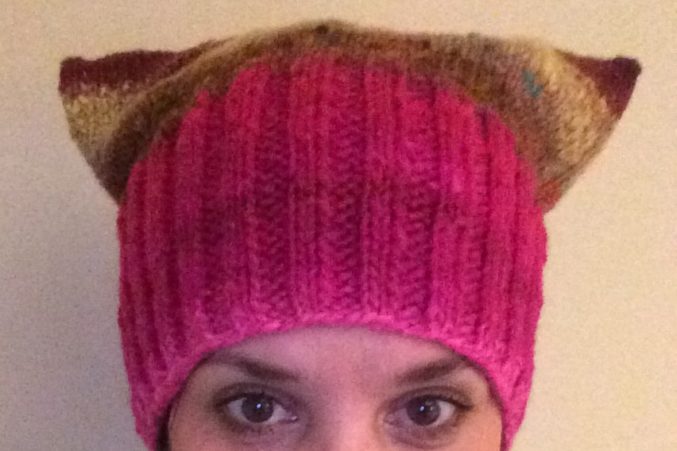
My first job out of law school was as a Legal Aid attorney in rural Ohio. My girlfriend Melissa (now wife) and I had bought a house in Columbus after she first got a job with a big fancy pants law firm. But my proletarian union job had a residency requirement, which meant that I had to get an apartment in Hillsboro. So I rented out the upstairs of an old home across the street from the Legal Aid office. It was beautifully redone, with a big fireplace and giant windows. But all I had to furnish it with was a futon, a dresser, and a folding table and chairs.
There wasn’t much to do in the evenings. There was a movie theater that I would frequent on hot nights as an escape from my air-conditionless apartment. Sometimes I would rent videos. And by rent videos I mean, walk down the street to the video rental store, peruse the racks, and pick out a VHS tape that I would watch, rewind, and return. Or, I could watch the teenagers cruise the downtown square every night around 7 p.m. And by cruise I mean, pile into pickup trucks and drive around and around and around the same block while hooting and hollering at each other and tossing beer cans out the tailgate. If Melissa came to visit, we would make a big night of it and go get surf and turf at the sole steakhouse. It was Melissa’s favorite place because, somehow, they had scored the last stash of Teem in the country, which Pepsi-Co had stopped making more than a decade earlier in 1984.
I needed a hobby if I was going to survive my two years of a long-distance relationship. One afternoon I saw Paulette, the office manager, knitting over the lunch hour. “Would you teach me?” I asked. “Sure,” she said.
I can’t remember if she loaned me the first set of needles or where I got them from—I don’t think I had my grandmother’s set yet. But I do remember that we started with casting on. She showed me how to hold the needle in my right hand and work the yarn with my left thumb. I would have to start over again and again until I understood how much excess yarn I needed to start with and how tightly I needed to pull the first stitches—too tight and you couldn’t get your needle through the first row. Too loose, and the spacing would be uneven.
There were only two other things to learn, really. Maybe three. The knit stitch, the purl stitch, and casting off. That’s the magic of knitting. Every fancy fisherman’s sweater and cable knit and tacky intarsia Christmas design is made with some combination of those two stitches. Like computer code, all ones and zeros.
Paulette and I would knit during lunch, and she would talk to me about her latest efforts for MADD, a group she was zealously dedicated to ever since a drunk driver killed her only son. Or we would talk about the cases that came through our door. The woman who had been beaten so badly by her stalking ex-boyfriend, the cop, that she’d miscarried. Or the mentally ill hoarder who was struggling to get his back Social Security Disability payments. Or the six-year-old boy who was being sexually abused by his father who still had visitation rights. Or the brother and sister who were caught in a guardianship dispute after their mother was killed in a hit and run while walking a dark, rural road home from work.
This was Trump’s America, although I didn’t know it then. White and rural. Destitute and desperate. Hardworking. Hopeful. Teem-drinking. Invisible.
That was about the time that Congress sought to eliminate federal subsidies for low-income legal services, during Bill Clinton’s presidency.
Most days I couldn’t make sense of the work. (What do you do when the judge calls you back into his chambers to let you know that he’s not going to take your child abuse allegations seriously because he himself is a firm supporter of corporal punishment, all while sitting a little too close?) But I could make sense of the knitting. The stitches followed a pattern, a logic, a rhythm. They built on each other. One mistake and the whole unraveled.
Women haven’t always knit by choice. At one time, it was an obligation. People needed socks, and why not make yourself useful while nursing?
But women have always been crafty, and never more so than when their means of expression have been most limited. Women have knit as a means of war, to clothe soldiers. During World War II, many taught themselves to knit in darkened movie theaters. “Knitting for Victory” was an actual slogan, printed on posters. Even better, “Remember Pearl Harbor—Purl Harder.” Eleanor Roosevelt hosted a Knit for Defense tea.
Women have knit as a means of protest, objecting to the unconstitutionality of the Stamp Act of 1765 with spinning bees to show they didn’t need no stinking British imports. Sojourner Truth taught knitting as a means of independence, and social reformer Lilian Wald taught knitting as a means of income.
There was an unfortunate decline in handicrafts with the advent of shoulder pads in the 1980s, but after 9/11 America saw a resurgence of activist crafters, labeled craftivists. Knitting appeals as a form of revolution because it is about reclamation. Redefinition. Reflection. Creation. Expression. Control.
You may claim the right to grab my pussy without consequence, but—as one response of many—I will knit a pussyhat, as have thousands of other women in preparation for the Women’s March on Washington. If not for the flu, I would be wearing one there now, pulled low over my brow, arm in arm with my sister and my best friend. The pussy ears would be askew, even comical. As some may claim we are. But we will know each other by our hats. And we will know that we thought similar thoughts as we knit each knit stitch and purled each purl stitch. And that we similarly cursed as we sewed up the seams, because knitters aren’t sewers. And we will know that we are in this fight together, with differences of opinion and perspective and education and income and geography. But with one goal: Equality and justice for all.
You may call my hat demeaning. I call it warm, with the yarn of righteousness.
Take back the knit, my sisters. And march on.





